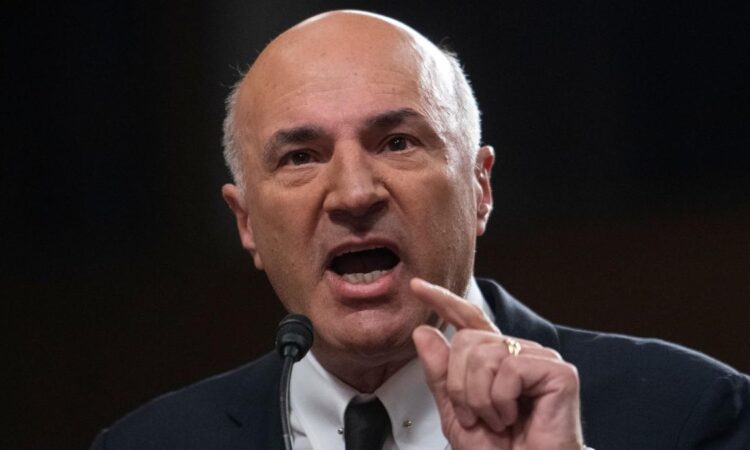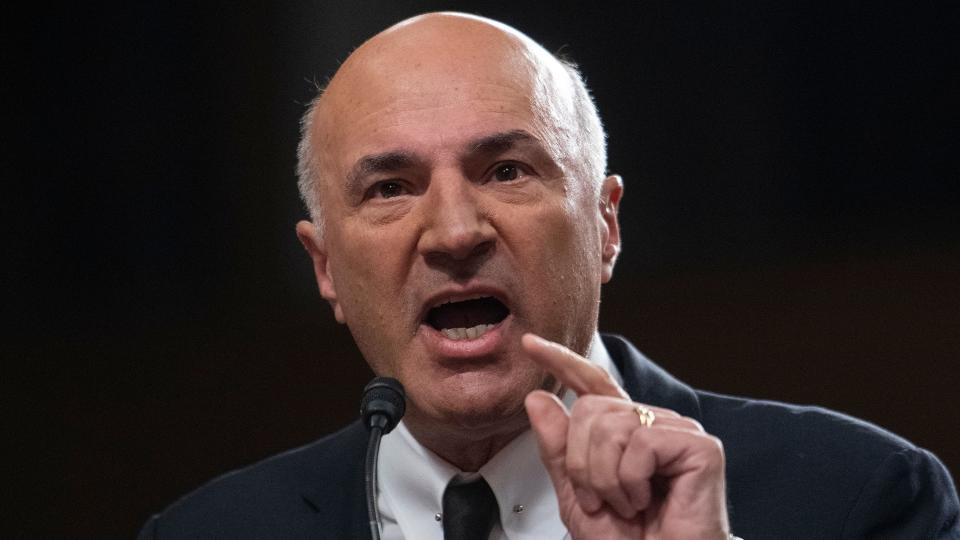Kevin O’Leary Says a Coming Real Estate Collapse Will Lead to ‘Chaos’ — Here’s What You Need To Know


“Shark Tank” star Kevin O’Leary believes that the commercial real estate sector is on the brink of collapse and will bring with it ripple effects that will be detrimental to investors and small business owners. He expanded on this “unique situation” while appearing on a recent episode of “Kudlow.”
Learn More: Top 7 Countries with Zero Income Tax
Check Out: 7 Unusual Ways To Make Extra Money (That Actually Work)
Here’s everything you need to know about the state of commercial real estate and how it can have broader economic impacts.
The Shift Away From In-Person Work Will Lead To More Bank Failures
Although many large-scale companies are shifting back to in-office work, many small businesses are not making this return. This means that many office buildings are remaining vacant.
“Many of these office spaces are in sub-grade markets, but even in cities like Boston, you find lots of vacancies — up to 40% of buildings,” O’Leary said. “The challenge is, in every other real estate cycle when you have a correction — which is about to happen here because of rising rates — we’ve got to refinance these buildings. Many of them have no equity left in them.”
This will cause serious issues for the regional banks that are invested in these buildings.
“These banks are going to fail because up to 40% of their portfolio is in commercial real estate,” O’Leary said.
Try This: Frugal People Love the 6 to 1 Grocery Shopping Method: Here’s Why It Works
Commercial Real Estate Will Need To Be Converted for Other Uses — But This Can Be Challenging
O’Leary said we are in a “unique” situation right now because the commercial real estate market is not expected to ever bounce back to where it was pre-pandemic.
“What’s unique, that’s just coming onto the radar screen, [is that] most of these cannot be used again as office [space] because the economy has changed,” he said. “No one saw this coming. But up to 40% of people that work in small businesses don’t return to offices anymore. So we have to repurpose this.”
O’Leary notes that these properties could theoretically be converted into storage spaces or even housing, but this is easier said than done.
“You can’t do that without zoning changes and policy [changes],” he said. “It’s very difficult. So it may be better long term to actually tear these buildings down and rebuild [them for a] new purpose — data centers, industrial climate-controlled storage. That’s where we have to do it, but who’s going to pay for it? That’s what the question is because we’re talking about a trillion dollars in aggregate here. So there’s big problems and it’s going to manifest itself in these regional [banks] over the next 36 months.”
O’Leary also noted that many of these buildings are no longer economically viable.
“Most of these buildings were built over the last 30 years and [have mortgages with] interest rates of less than 4%,” he said. “Now the Fed has raised rates to 5.5% terminal rate, which means these mortgages are going to be refinanced at 9% to 11% — so a 3x cost. So many of these buildings won’t be economically viable.”
The Issues With Commerical Real Estate Will Hurt Small Business Owners
As regional banks feel the effects of the commercial real estate collapse, this will be carried over to small business owners who normally seek loans from these banks.
“The spin-off, which is causing chaos right now, is those loan books at those regional banks,” O’Leary said. “Regional banks have closed to small businesses because they have capital call requirements, put on them because of the pressure on this commercial real estate, so they’re not making loans. […] So we’ve got the pressure at the regional banks, commercial real estate collapse and small business not getting any capital. This is all bad news.”
More From GOBankingRates
This article originally appeared on GOBankingRates.com: Kevin O’Leary Says a Coming Real Estate Collapse Will Lead to ‘Chaos’ — Here’s What You Need To Know

